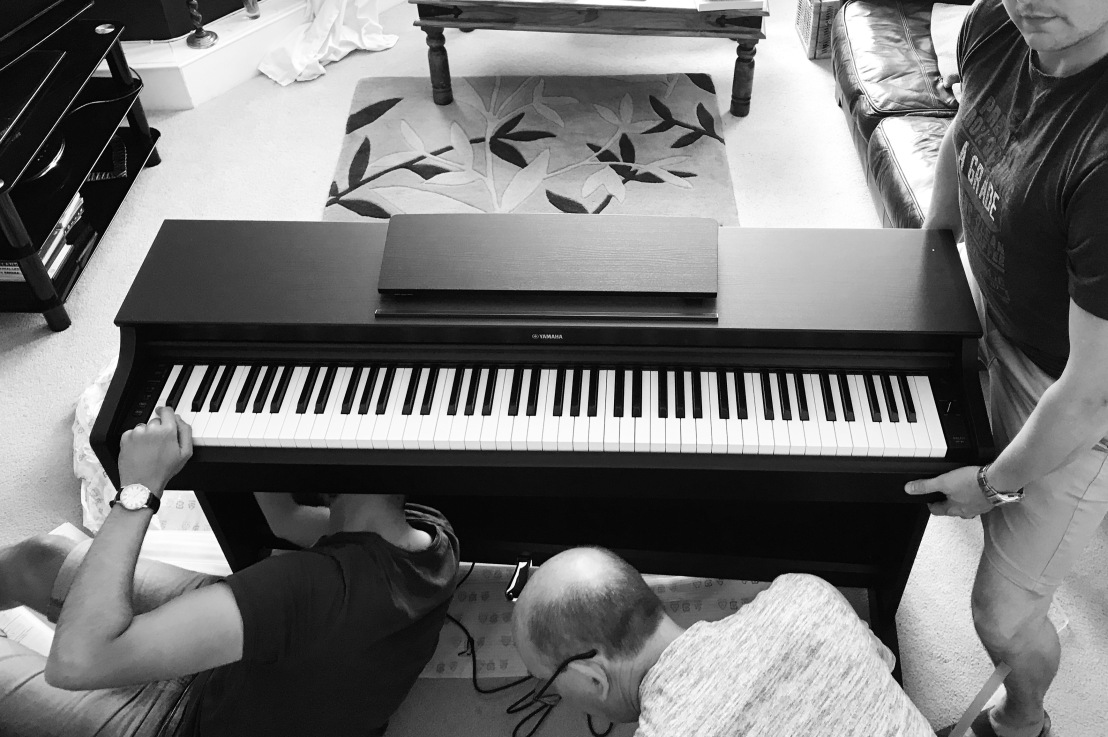I love music. Creativity has played a major role in my family for generations. My great grandparents played instruments. My grandma was trained to sing at the Guildhall School of Music & Drama, touring concert houses across the globe with her beautiful voice in the 60s, 70s and 80s. My Dad had earned a place at RADA before opting for church ministry instead (quite a career change, yes) and has mastered jazz piano ever since I can remember. My mum is less musical – more adept at art – but brilliant in her own right. The majority of my wider family can play an instrument of some kind; guitar, drums, piano, didgeridoo, flute, banjo, euphonium etc. You name it; we’ve tried it.
As a child I had piano lessons, but my potential for Beethovenian genius was snatched from my little hands each time we moved for my parents’ jobs, making it difficult to continue successfully. (As an aside: as a result of moving I also studied the Aztecs twice and never learned long division until I had to teach it to my Year 6 class at the age of 22.)
I’m pleased to say that, this summer, I succumbed to my ever-increasing desire to play again and bought a piano. I am totally loving it. Whenever I can in the evenings or weekends, I’ll sit for an hour and strike away at the keys in the hope that the chord I’m reaching for resembles something of the graphical note representation I see on the page before me. It’s still hit and miss if truth be told, but I’m definitely way better than I was eight weeks ago.
Why am I harping on about a piano?
Simply, this process of learning that I’m becoming more and more committed to is opening my eyes to the journey we expect our students to travel. The fact that I possess a novice-level understanding of the piano and how it works already might mean that I am building any further knowledge a little quicker, but it’s certainly not easy. I thought I’d put together a top five set of ‘quick learns’ that seem wholly transferable from my own learning experience to the classroom:
- PRIOR KNOWLEDGE:
Learning anything new must build on prior knowledge, however weak the triggers may be. The brain seems to be constantly trying to make associations; between notes, within chords, from one piece to another. - EXPERTISE:
Making progress will be faster in the presence (and under the direction) of someone whose subject knowledge is far superior to your own. - INTERLEAVING REHEARSAL:
Practising in smaller measures – an hour here and there rather than a whole morning – seems to produce better performance. Opportunities for testing, resting and a chance to forget movements or parts of movements, then returning to a piece a day (or more) later is resulting in longer-term learning. - ADDRESSING ERRORS:
Keeping your fingers locked into the incorrect keys, when you fail to produce the sound you thought you were about to, allows you to check each note and find the misplaced one (or two, or three…). From there, you can find real clarity in the assessment of your own playing over time. Once you’ve identified common error patterns you’re repeatedly making you can focus on the minutiae of specific chord movements and retrain your mind and muscles to move how they should. - FEEDBACK:
Having an audience who is willing to listen to you and give feed back on specific aspects of your playing is a real win. You can lose yourself in the precision of the notes a little, so to have those who possess a level of musicality themselves offering suggestions for development; this can only be a good thing.
In such a brief reflection as this, I’m surprised as to how much of what we preach in the classroom transfers to learning a musical instrument – and beyond. There’s comfort in that.
Watch this space for an invitation to a wonderful Christmas soiree. Or Summer.
Yes, that has a more realistic ring to it.
